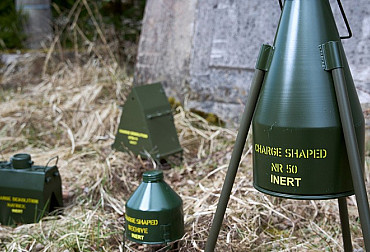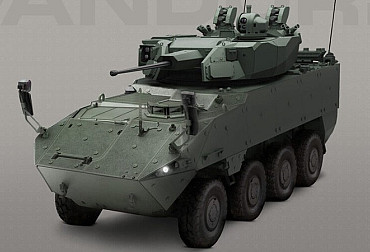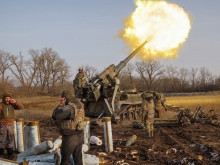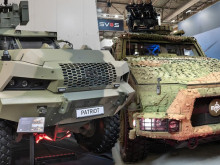Military Intelligence Defines the Risks of Weapons Industry Capabilities in Europe
The latest annual report from Military Intelligence (MI) focuses on the risks posed by insufficient capabilities within the arms industry in Europe and the Czech Republic. According to the report, the European arms industry last year failed to meet the requirements of the armed forces in EU countries. The issue lies not in the quality of production but in its insufficient capacity, which stems from years of underfunding military purchases. In the Czech Republic, although defense spending was approved at 2% of GDP last year, the reality was only 1.37%. Current estimates indicate that this year's statutory spending will likely fall short again, despite extensive modernization projects.
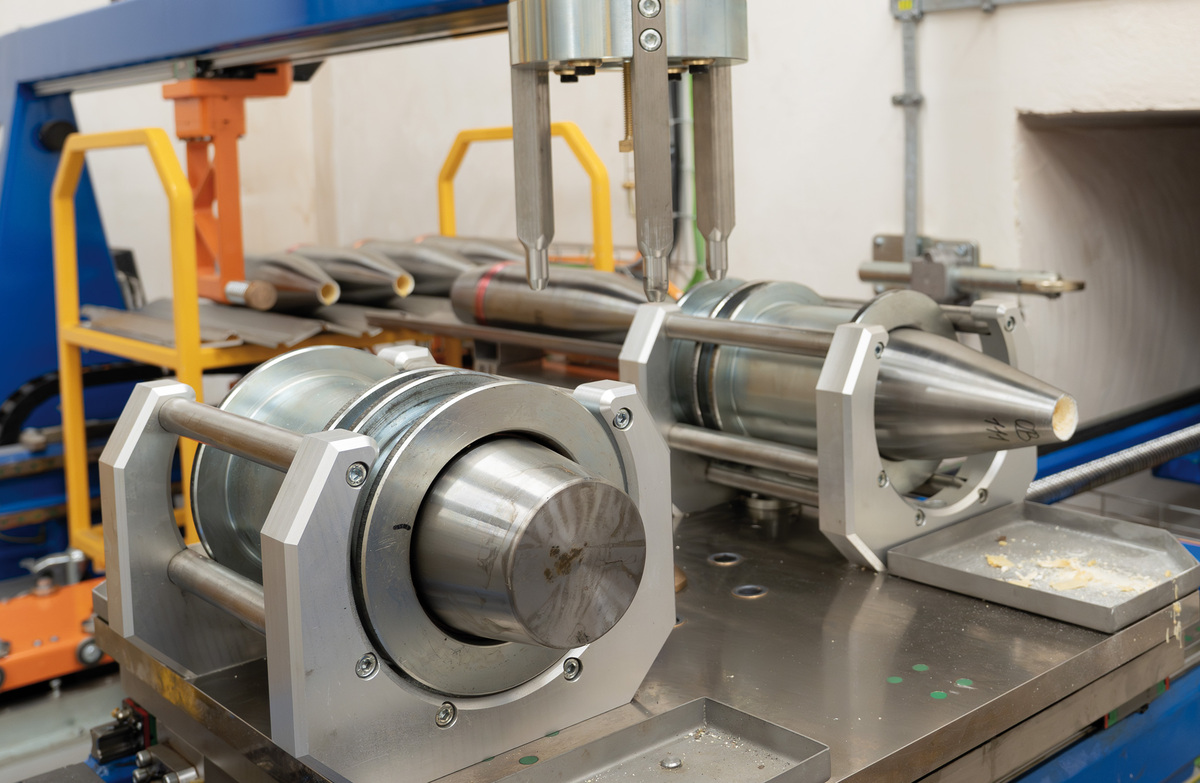
After nearly three years of the Russo-Ukrainian war, a significant portion of European stockpiles of ammunition, equipment, and military material has been delivered to Ukraine. Ammunition stocks in EU countries have fallen alarmingly, and replenishing them with new production is difficult because newly manufactured ammunition often goes directly to Ukraine. MI attributes this lack of production capacity to low defense spending over the past quarter century, which led the European arms industry to adapt to an environment of reduced demand. Although the defense industry has maintained a high level of sophistication and technological maturity, production capacity has been reduced to the bare minimum, the annual report states. While companies can deliver advanced military equipment, they do so in limited quantities and with long lead times. The question now is how this trend can be reversed.
As mentioned, the Russian invasion of Ukraine in 2022 fully exposed the key weaknesses of the European arms industry, which was unable to respond adequately to the surge in demand for weapons and ammunition after years of stagnation. In this context, the Military Intelligence Report 2023 highlights the need to focus on strategic security, particularly by increasing the capacity to produce weapons, equipment, and ammunition of all kinds. However, the financial cost of remedial measures such as increasing domestic production, holding strategic stocks, and boosting production capacity will be significant. The report also stresses the need for a societal shift in attitude toward the arms industry. It should become a common interest among companies, associations, professional organizations, and politicians to convince the public of the arms industry’s critical role in ensuring security.
"The capabilities and capacities of the defense industry are undoubtedly key factors that influence, and will continue to influence, the defense capability of individual countries. That is why, in the context of the war in Ukraine, we have included a chapter on the challenges facing the arms industry in the current security threat environment in our 2023 Public Annual Report," states the Military Intelligence Directorate in its rationale for covering this topic.
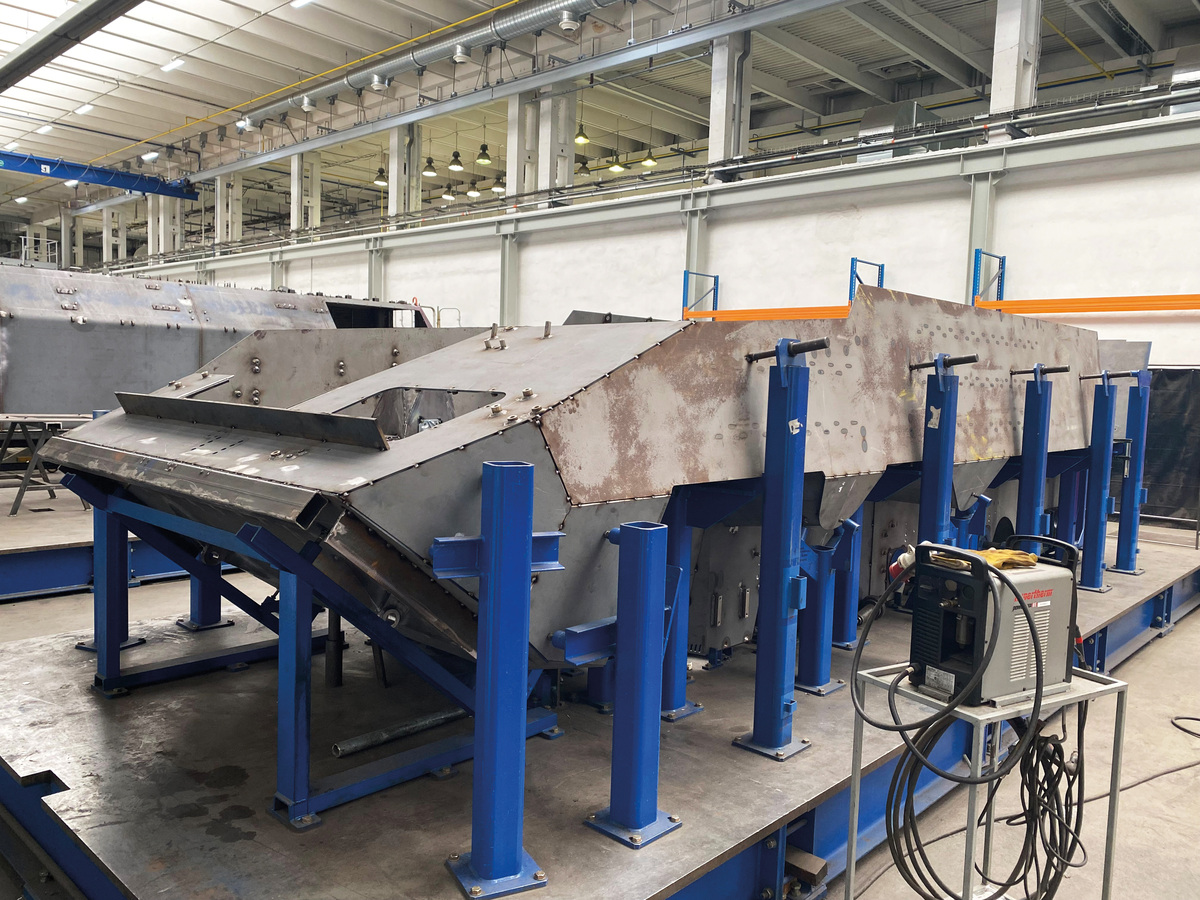
Although European countries have taken steps to halt this negative trend, several areas still require immediate attention. Despite the arms industry being a strategic part of national economies, arms companies and traders face various regulations imposed by national authorities and international institutions. The European arms industry's unsatisfactory state has also been influenced by diverse societal groups that have long criticized arms production as being useless, unethical, non-ecological, or inefficient. These groups include competing industries, pacifists, environmentally oriented politicians, activists, and lobbyists.
According to the MI annual report, one of the core problems facing the defense industry in both the EU and the Czech Republic is the unavailability of raw materials and the vulnerability of the logistics chain. The European defense industry has become dangerously dependent on supplies from third countries. Due to limited resources and the difficulty of processing raw materials, most materials for arms production must be imported. The arms industry relies heavily on precious metals, but their production is largely controlled by China and Russia. China, for example, accounts for over 90% of Europe’s supply of rare earth elements, which are essential in the production of heavy metals. The fragmentation of production chains and reliance on non-European subcontractors also pose a problem. To reduce costs, the production of less sophisticated components has been outsourced to non-European plants, which reduces production capacity in Europe and increases transport times due to logistics. As a result, European arms producers can only deliver their products in limited quantities and on long lead times.
Low demand and the partial decline of weapons system development and modernization have caused a decrease in skilled labor and development personnel. Now, with demand increasing, it is difficult to find new experts, and there is a shortage of researchers, developers, and production workers. An aging workforce is also an issue.
Additionally, European regulations on industrial emissions, the emphasis on environmental protection, and the transition to green energy have made production more expensive and jeopardized the existence of companies critical to arms production. The ecological assessment of arms production, or the classification of it as a "dirty" industry by certain politicians or experts, complicates access to financing for arms companies. This not only limits credit for research and production investments but also restricts financial transactions. Although supplies to Ukraine generate above-average profits for arms manufacturers, they still rely on bank loans to expand capacity. Other risks identified in the MI report include protectionist policies and a lack of cooperation between European countries.
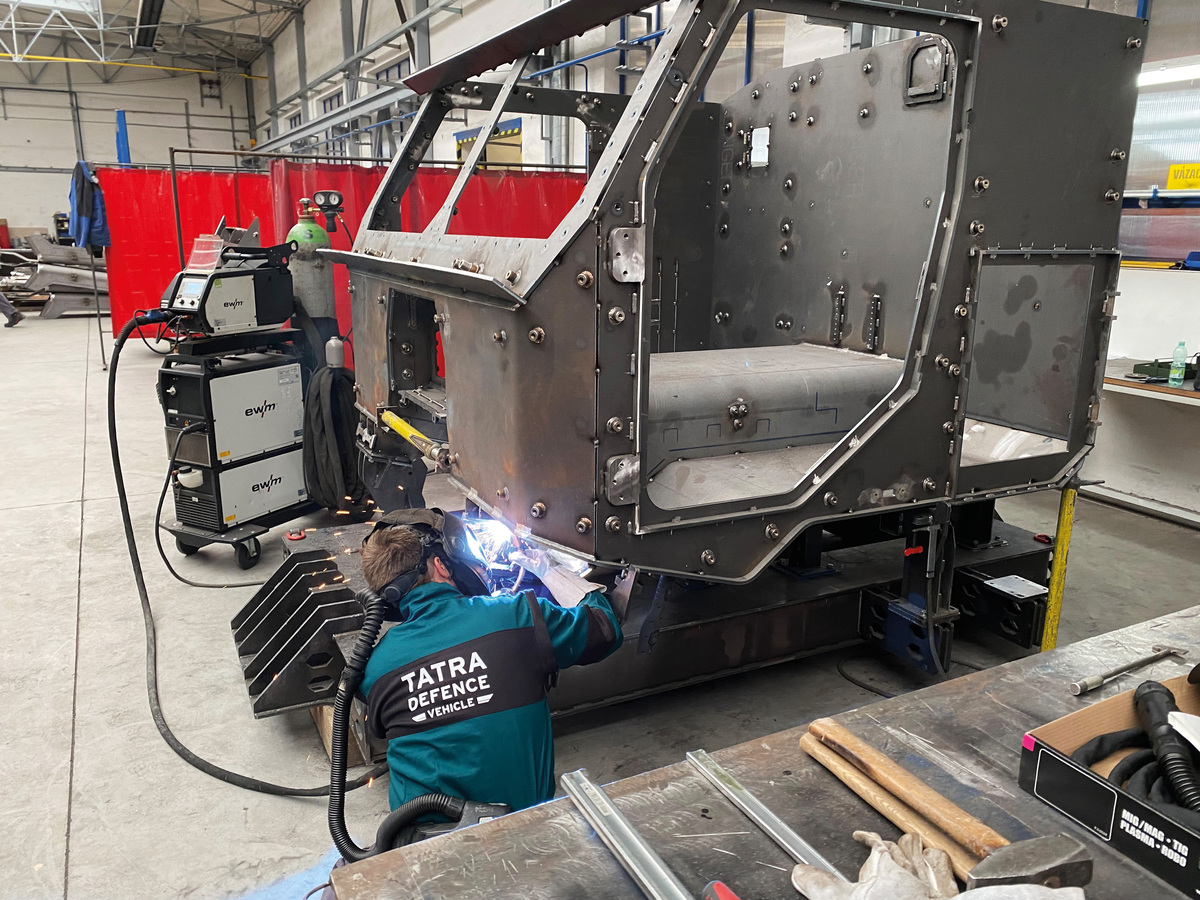
We asked Military Intelligence spokesperson Jan Pejšek about the biggest challenges the Czech defense industry is currently facing: "It’s similar across Europe. There’s a surge in demand, a need to increase production capacity, and an associated need for raw materials, components, and skilled labor, as well as complicated access to bank loans. However, in the Czech Republic, we’ve seen a positive trend over the last two years, where many companies have managed to adapt to the new security environment, and their production is growing," Pejšek told CZ DEFENCE. According to him, the Czech Army should primarily rely on the capabilities of Czech defense industry companies. "The domestic defense industry is undoubtedly a strategic advantage. Having production and repair capacities 'at hand' is crucial. However, a necessary condition for successful cooperation is that the products and services offered are competitive in terms of quality and price," Pejšek added, noting that Czech defense industry representatives should focus on monitoring army needs and investing in areas where there is growth and business potential.
This view is echoed by the MI's recommendation to place greater emphasis on strategic security, which in many respects contradicts the principles of a free-market economy and various internal EU regulations (e.g., environmental or human rights issues).
Regarding the role of the Czech defense industry and its promotion in the European context, the Defence Industry Section of the Chamber of Commerce of the Czech Republic (SOP HK ČR) and the Association of the Defence and Security Industry of the Czech Republic (AOBP) play a vital role. We asked the Chairman of the Chamber of Commerce, Lubomír Kovařík, and the President of AOBP, Jiří Hynek, the following questions:
- What do you think are the biggest challenges facing the Czech defense industry?
- To what extent should the Czech Army primarily rely on Czech defense industry companies?
- What should Czech defense industry representatives focus on in the future?
Lubomír Kovařík, Chairman SOP HK ČR
1. The Czech defence industry is facing several major challenges that affect production capacity, access to necessary raw materials and financing. A significant problem is the limited availability of specific materials and technologies that are not readily available in Europe and have to be imported from other parts of the world. A good example is the lack of nitrocellulose production capacity in Europe, which leads to a shortage of gunpowder, which is essential for the production of large calibre ammunition. This situation is exacerbated by the war in Ukraine and the efforts of NATO and EU countries to replenish their stocks while supporting Ukraine. Last but not least, there is the issue of funding. In the past, some banks have refused to provide financing to the defence industry because of their ESG policies. However, thanks to the war in Ukraine and the activities of the Minister for Defence, Jana Černochová, the situation is beginning to improve, which is encouraging for the whole sector.
2. The defence industry is a traditional and strategically important sector that is successfully developing and modernising thanks to private capital. This includes not only the production of weapons and ammunition, but also the development of sophisticated technologies for defence and security purposes. The Czech army should make maximum use of the capabilities of the domestic defence industry. It is essential that key military technologies and equipment are produced nationally, which contributes to our strategic independence and reduces dependence on foreign suppliers.
On behalf of the Defence Industry Section of the Chamber of Commerce and Industry of the Czech Republic, I would like to stress that we appreciate the fact that the Ministry of Defence requires direct industrial cooperation programmes within the framework of strategic supplies. The participation of Czech manufacturers in the orders of foreign companies leads to the strengthening of self-sufficiency, the acquisition of important know-how and involvement in the supply chains of foreign companies. Many Czech companies already supply key components and technologies to foreign suppliers. The involvement of Czech manufacturers also has positive economic impacts, i.e. return on investment in the domestic economy, employment, development of production capacities. It should also be said that success on the domestic market is also a prerequisite for success on foreign markets. In other words, supplies to the Czech army, police and other local forces are an important reference for supplies abroad, with Czech companies generating more than 80% of their sales through exports.
3. These are in several key areas, including increased production capacity, particularly in munitions and key weapon systems. Current capacities are inadequate to meet the existing needs of NATO and EU countries and the needs of Ukraine, which they support with military supplies. However, building new capacity is not a matter of weeks but of years, and close coordination with the state is therefore absolutely essential. The Army of the Czech Republic and other armed forces must define their needs not only for peacetime, but also for crisis situations, and thus ensure the necessary production capacity. Another important aspect is ensuring stable access to the necessary raw materials and technologies, where cooperation with the state and international partners plays an important role. In this respect, it is also essential to continue investing in new technologies that will enable more efficient use of available resources. Companies must also continuously invest in research and development and bring new products to the market in order to be able to provide our army, police and other security forces with high-quality and modern equipment. This is crucial not only to support national security, but also to remain competitive in foreign markets, which are the main source of revenue for most forms of Czech defence industry. Cooperation between government, industry and financial institutions is key to creating a stable and sustainable financial ecosystem. It is encouraging that, thanks to the dialogue led by Minister Černochová, the attitude of banks towards financing the defence industry is changing, which will enable us to better respond to current and future security challenges.
Jiří Hynek, President AOBP
1. On a daily basis, buyers in armaments factories are faced with tight supplies of raw materials and supplies. Supplier lead times are being extended disproportionately while prices are rising. What used to take a week to deliver now takes months. There is still a shortage of skilled labour. The defence industry does not belong to the category of cheap assembly plants of the 'we will train the untrained' type. In addition, it has a high proportion of research and development work, so it needs educated employees in technical and scientific fields, which are scarce on the labour market. But the biggest problem I see is the discriminatory attitude of banks towards the defence industry. Despite all the assurances from top bank officials, the situation is not improving. Certain banks even require companies that have been assigned NCAGE, a NATO cataloguing code, to submit customer reports with delivery volumes. The Defence and Security Industry Association carried out a survey last month to find out whether the banks' approach has changed over the past six months. SMEs in the defence industry still face reluctance from banks to open accounts for them. The inability to obtain investment credit then affects their ability to increase production capacity and they can only dream of supplier and pre-export credit. The banks do not care that the material is destined for EU countries, NATO or a defending Ukraine. Defence companies are also faced with banks refusing to make payments, which is shockingly repeated for supplies paid for by the Ukrainian side. It is in the government's interest that the defence industry should be provided with optimal conditions for its operation, as this is the only way it can be a pillar of national defence.
2. To the maximum extent possible. There is no need to invent anything revolutionary. Just look at how they do it in France, Germany, Great Britain, Italy, and even Poland. In all these countries, domestic industry has more than 90% of the supply for their own armed forces. Covid has shown that the only thing a country can rely on in times of crisis is its own industry. In the event of war breaking out, there would be no international treaties, air transport would not work and ground transport would be very slow. The idea that we would have a seamless supply of spare parts from abroad to repair damaged equipment is completely wrong. If the state does not use the capacity of domestic manufacturers in peacetime, it will not have it in wartime.
3. Research, development and innovation in the field of military technology and equipment gives a chance to gain technical superiority. And it gives a sure chance to defend against a numerically superior enemy. The area of disruptive technologies is exactly where industry's efforts should be focused.















